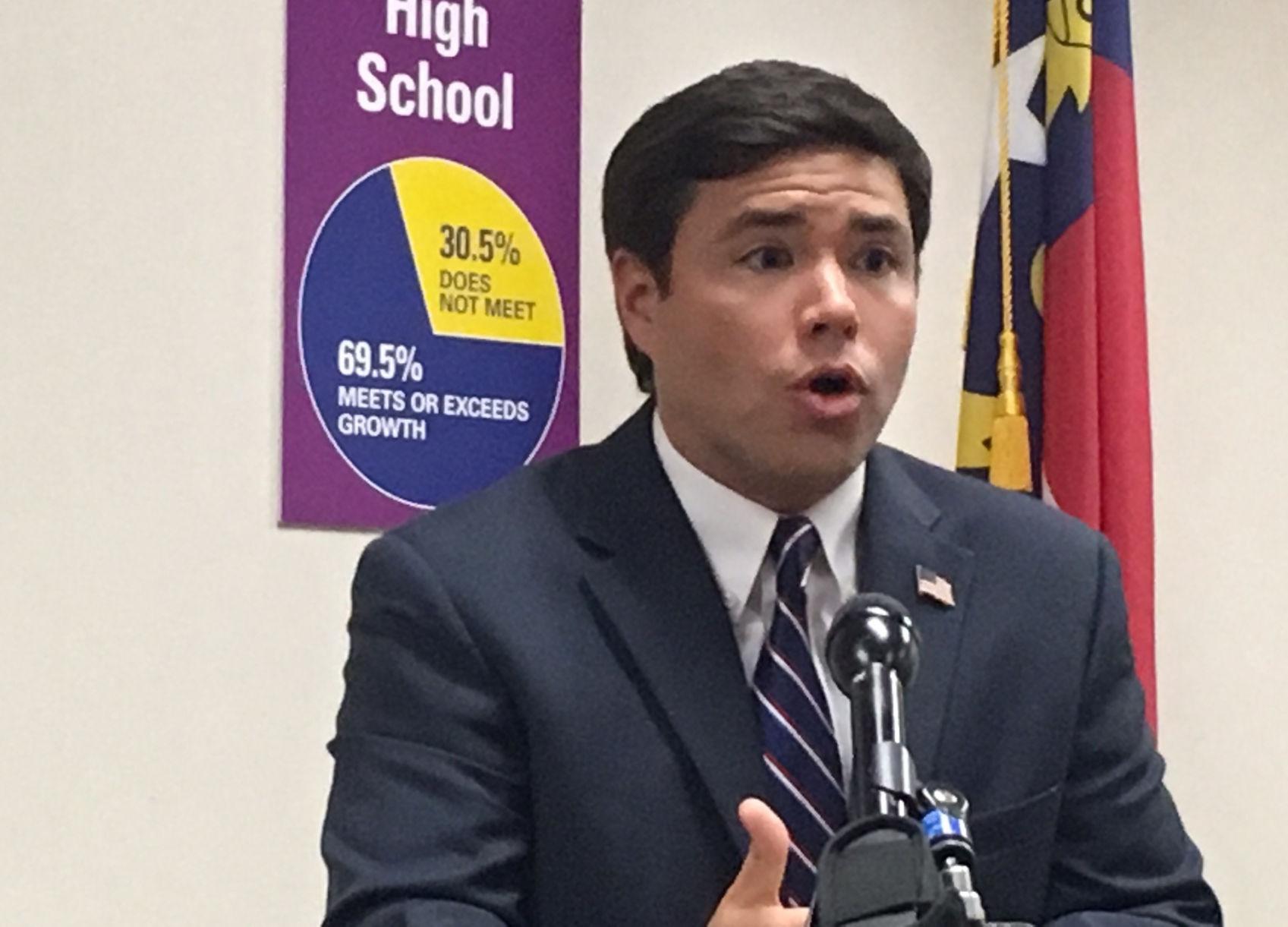State audit finds shortcomings in North Carolina virtual school curriculum

North Carolina State Superintendent Mark Johnson
(The Center Square) – While states decide between distance, hybrid and in-class learning for children amid the COVID-19 pandemic, a recent audit of North Carolina’s virtual education program found below-par curriculum in its K-12 school.
Gov. Roy Cooper plans to announce the reopening plan for North Carolina schools next week after delaying the decision July 1. He told reporters he was holding off on making an official announcement until he figures out the right plan.
School districts were asked to tailor plans based on the severity of the outbreak, with options to consider ranging from full classroom instruction to smaller classroom sizes to distance learning – or a hybrid of all three.
Since 2007, North Carolina parents of high school and middle school students have had the option to enroll their children in the North Carolina Virtual Public School (NCVPS) for supplemental curriculum. NCVPS offers online courses in math, science, language arts, social studies, arts, advanced placement, honors, and world languages.
According to a state audit report released June 30, however, eight of the 12 NCVPS courses evaluated did not meet content and design standards as promised. Only one of the courses met rigorous coursework guidelines, and teacher performance evaluations have not been conducted regularly, which is school policy.
“As a result, students taking these courses may not achieve planned learning objectives and be career and college ready,” the audit report from State Auditor Beth Wood’s office read.
NCVPS was launched in 2007 by the Department of Public Instruction (DPI), and more than 40 percent of the students living in rural or underserved school districts attend the virtual school.
A total of 51,949 students enrolled in NCVPS during the 2018-2019 school year, and it received $18 million in state funding.
North Carolina law requires the virtual school to meet course-of-study requirements set by DPI, Quality Matters standards for online learning and College Board standards for Advanced Placement courses, state auditors said. Also, all of its courses must follow Bloom’s taxonomy, a universally recognized teaching method meant to increase learning on various levels.
Wood advised NCVPS to remove the substandard content and to construct better quality assurance and teacher evaluation procedures in the school.
Some courses also used learning material that came from a third-party source but was not attributed accordingly, the audit said. Wood recommended the school used plagiarism software to avoid copyright infringement.
State Superintendent of Public Instruction Mark Johnson said the department previously had identified the issues with plagiarism and teacher evaluations during an internal audit, and NCVPS was working to rectify the problems. Johnson, however, disagreed with the audit’s other findings.
Johnson said the auditors ignored student feedback, standardized testing results and the teachers’ credentials.
“NCVPS recognizes the importance of course content; however, the audit findings suggest that course content alone defines the totality of student mastery of content,” Johnson said in his response to the state audit.
Quality Matters, the organization behind some of the online course material, also took issue with how its rubrics were used to evaluate NCVPS’ curriculum.
“We will not, and cannot be, associated with or held accountable for the accuracy or validity of the review findings or the review recommendations,” said Deborah Adair, Quality Matters’ executive director. “We urge all concerned to consider benefits to our students of evaluating commitment to and progress towards a robust quality assurance process rather than evaluating the quality of the student experience in a snapshot course review, inappropriately applied.”

